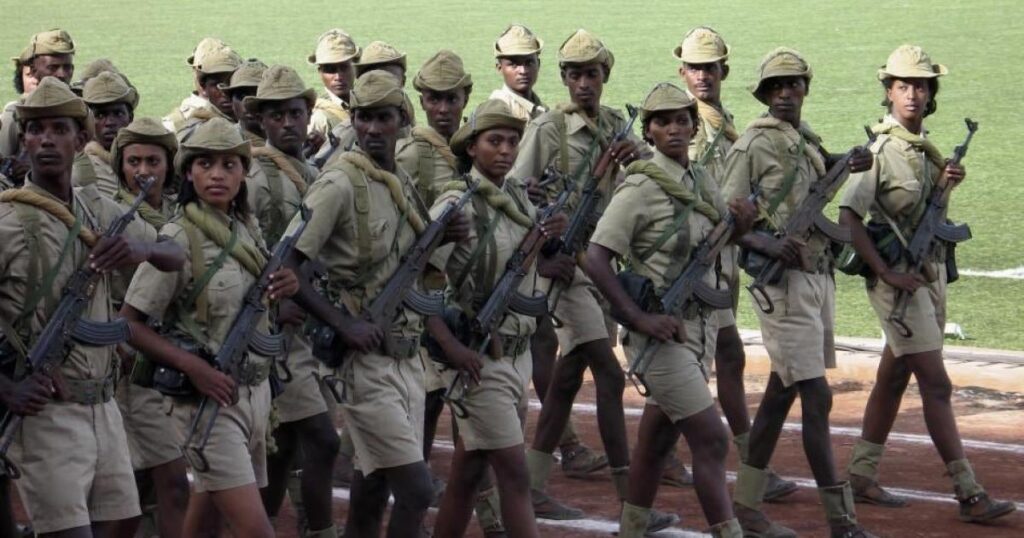Mekelle፡Telaviv, Nairobi, Pretoria, London, (Tigray Herald).
Op-Ed፡Eritrea’s Martyrs Are Remembered — But the Living Are Betrayed
By Tesema Nadow
In Eritrea, June 20 is marked as Martyrs’ Day a solemn national holiday to honor the tens of thousands who died during the country’s decades-long struggle for independence from Ethiopia. Across the country and among diaspora communities, mourners gather, candles are lit, and patriotic anthems fill the air. But beneath the somber pageantry lies a more painful truth: the dream for which Eritrea’s martyrs died has been hijacked.
The independence they fought for has never translated into freedom for the living. Instead, the nation has become a cautionary tale a country where those left behind are enslaved by the very system their loved ones died to dismantle.
Liberation without Liberty
Eritrea’s liberation war (1961–1991) was one of the longest and most brutal in Africa. It produced an extraordinary generation of fighters, men and women who endured trench warfare, aerial bombardment, famine, and exile to achieve a singular goal: self-rule.
That dream materialized in 1993, when Eritrea became a sovereign state. But 31 years later, it is clear that sovereignty has not delivered liberty. Eritrea today is ruled by Isaias Afwerki, its first and only president a man who transformed from liberation hero into autocratic strongman.
There is no constitution in effect, no elections, no independent media, and no political pluralism. A once-celebrated revolution has curdled into a regime of total control.
National Service or National Enslavement?
At the heart of Eritrea’s repression is its indefinite national service policy. Initially conceived as a two-year patriotic duty to rebuild the country, national service has become an open-ended system of forced labor, where young men and women are conscripted into military or state work often for decades, and without meaningful pay, legal recourse, or freedom to leave.
A 2016 UN Commission of Inquiry concluded that this system may constitute crimes against humanity, including enslavement. Thousands flee every month, risking traffickers, desert heat, and Mediterranean shipwrecks to escape what many describe as a prison without bars.
And yet, on Martyrs’ Day, the government celebrates sacrifice while perpetuating generational suffering. The contradiction is staggering.

“The dead, at least, are free. The living are not.”
This chilling sentiment, often whispered among Eritrean exiles, captures the moral decay of the Eritrean state. The very revolution that promised dignity has become the justification for its erosion.
Mourning with Hollow Promises
Every year, the Eritrean government exhorts the public to remember the martyrs, to tend their graves, to celebrate their courage. Yet orphans of those same martyrs live in poverty, abandoned by the state their parents helped build.
Remembrance has become ritualized hypocrisy an empty performance that honors the dead while betraying the living.
This is not merely a political failure. It is a moral one.
Independence Means Accountability
True liberation requires more than independence from foreign rule it demands accountability, justice, and the restoration of human dignity. Eritrea’s problem is not external enemies. It is internal betrayal. The dictatorship that emerged after independence has robbed an entire generation of agency, hope, and future.
It doesn’t have to be this way.
To truly honor the martyrs, Eritrea must abolish indefinite national service. It must end the rule by fear. It must allow its youth to dream beyond a uniform and a gun.
Eritrea’s heroes did not die for a military labor camp. They died for a free nation. The living must now fight peacefully, courageously, and insistently for the freedom they were promised.
Until then, Martyrs’ Day will remain not a celebration of liberation, but a lament for a vision betrayed.
Tesema Nadow is an East African analyst and writer covering authoritarianism, conflict, and liberation politics in the Horn of Africa. He contributes to the Tigray Herald and international publications.




